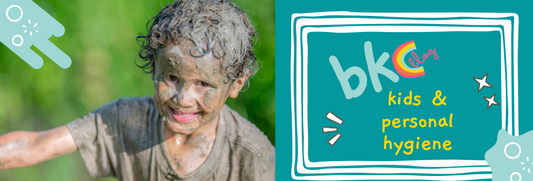Every new year presents an opportunity to pick up new practices. To help your child on their learning journey, we’ve selected eight journaling or writing practices for them to explore.

From life coaches to child development experts, many speak about the benefits of journaling for adults and children alike. (In case you’re unsure whether journaling is for your child, be assured there are many approaches to journaling, based on one’s personal inclinations.)
However, even for a child who enjoys writing, knowing what to write on a regular basis can feel like an uphill task. For this very reason, there are some great journals with writing prompts to aid a child’s writing and self-exploration process.
We have listed eight types of journals or writing practices, either for your child to explore on their own or for you to share with them, and hopefully build a lifelong practice.
1. The Jumbo Journal About Me

Have a precocious preteen at home? This journal is a personal diary with a twist. The black-and-white illustrations allow space for your child to fill with colour, and record their dreams and aspirations, and anything that gives them joy. These could be experiences with friends at school, reflections on the past, or projections for the future.
Buy it here
2. My Reward Jar | Reward Earning System

Not exactly a journal but great for goal-motivated children, the reward jar will help your child build meaningful habits. It will also make doing chores a more enjoyable experience. The purpose of the reward jar is to teach independence and accountability. We recommend involving your child while setting goals and encourage and celebrate them as the jar gradually fills up.
Buy it here
3. My Big Book of Firsts

Journaling is essentially the practice of creating a record of your life, however you choose. If your child is still too young to start writing as a practice, it doesn’t mean they cannot begin capturing milestones and moments from their life. This one would definitely require your involvement and could, in fact, become a way for your child to share with you their feelings about different experiences. And eventually, it may inspire your child to start journaling on their own once they’re older.
Buy it here
4. Gratitude Journals
Research shows that children who are taught to practise gratitude grow up to become happier and optimistic, along with becoming more empathetic towards others. Studies also show that children as young as five are happier when taught about gratitude. So there’s no right or wrong age to begin, but the younger the better. Here are two gratitude journals for your child:
-
All-It-Takes-Is-Five-Minutes Gratitude Journal

Kids who find it difficult to focus for long periods of time would find it easy to find the discipline needed to maintain this journal. Its five-minute format and colourful stickers make the writing process engaging, and is designed to help children build a habit.
Buy it here
-
Gratitude Binder

Gratitude journals come in many shapes and sizes. This one would be easy for your child to carry around in their backpack, flip through at ease, and write whenever they’re hit by inspiration.
Buy it here
5. Holiday Journal

This journal will serve your child well beyond this new year during holidays for years to come. More often than not, when we’re enjoying ourselves we do not stop for introspection. With this journal, your child would be encouraged to take stock even during the fun times, and record precious memories.
Buy it here
6. A Journal for Looking Within

Filled with illustrations, affirmations, and prompts, this journal will encourage your child to look within, and learn self-acceptance and self-awareness. It will teach your child life lessons and strategies, including practising gratitude, developing self-compassion, and building a healthy relationship with fear. It also provides lots of space for free writing.
Buy it here
7. Aurelia Writing Set

Letter writing is sadly a lost art and can serve as a great alternative to journaling. It encourages children to think outside of themselves and reflect on the lives of the person they are writing to, all of which teaches empathy. Encourage your child to send cards and letters to friends and family.
Buy it here
If there’s one healthy habit that you are hoping your child will build this year, journaling regularly is a significantly important one that has life-changing implications. It could help your child in many spheres of life, from personal to academic and even professional, as they advance in their years. And it all begins here with one notebook, a pen, and a few minutes of reflection.





